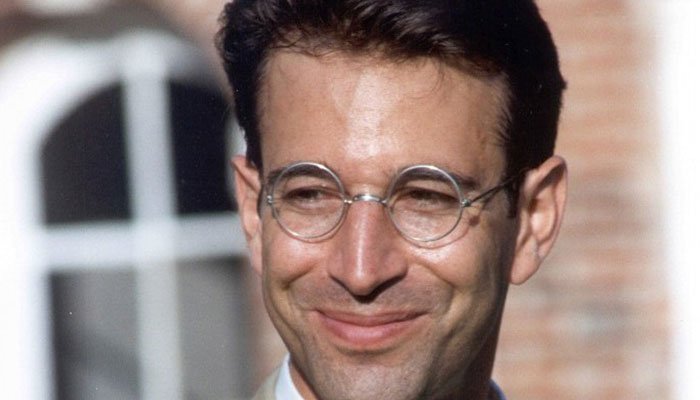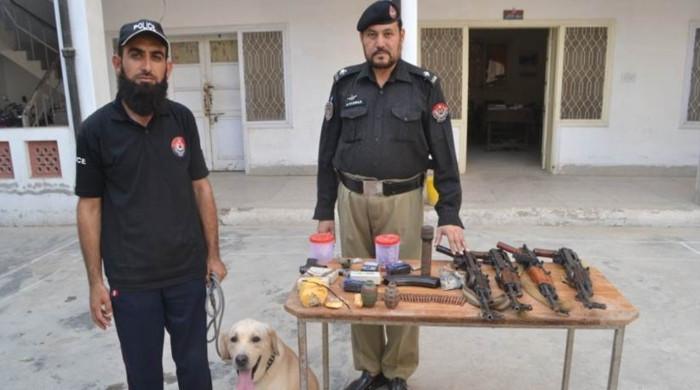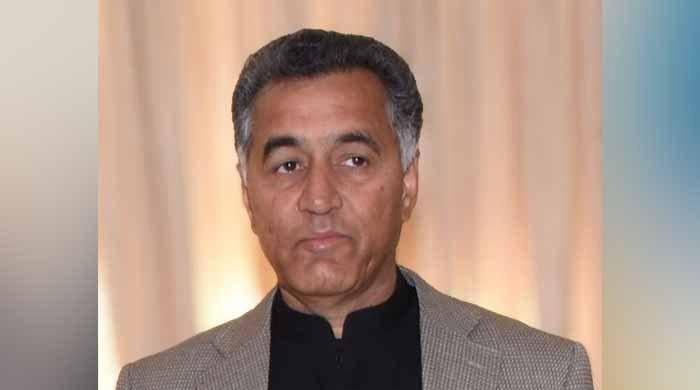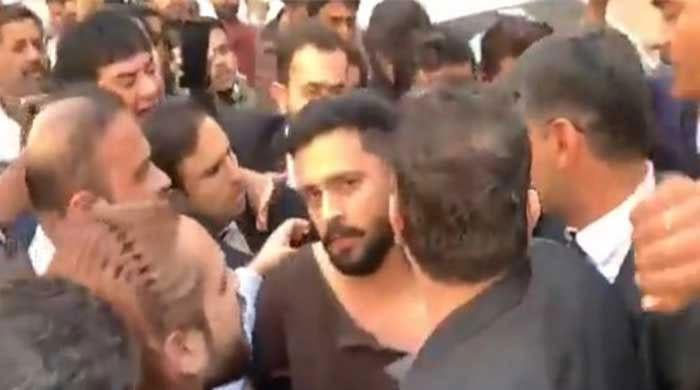Daniel Pearl’s murder and the case of the missing link
Despite Thursday’s verdict, the mystery of who killed the reporter of Wall Street Journal remains unresolved to this day
April 04, 2020

The court room was sparsely crowded and unusually languid on an early Thursday morning. Due to the coronavirus outbreak in Pakistan, those present were lawyers and close relatives of the accused.
At around 9 a.m. the division bench of the Sindh High Court began announcing its verdict in the 2002 murder and kidnapping of American journalist Daniel Pearl.
The Court commuted the death sentence of the prime suspect, British Pakistani Ahmad Omar Saeed Sheikh, also known as Sheikh Omar, by dropping murder charges. It instead found him guilty of only kidnapping, sentencing him to seven years in prison. Separately, it upheld the appeal filed by three others - Fahad Nasim, Adil Sheikh and Suleman Saqib - and ordered their release.
Lately, while attending court hearings regularly, I have come to know some of the relatives of the accused. For the families of the four men, justice though delayed, has finally been done.
On the day of the verdict, Omar’s father was missing. Their lawyer later called him up to tell him of the court’s happenings. I also spoke to his father, who was in Lahore that day. He said: “I thank Allah that justice has been done. I believe that my son was not involved in the kidnapping either.”
For Fahad Nasim's father, it was “a painful journey”. “When Fahad was arrested he was a B.Com student. I wondered what he would do now,” his old man told me. While Adil Sheikh's brother was more hopeful. Sheikh had spent a lot of his jail time in hospitals, due to a prolonged illness. “I really hope his old department, the police, will rehire him,” his brother told me.
As for Omar, he remained on death row for eighteen years, while being shifted from Karachi to Hyderabad and then Sukkur due to security reasons. Even though his family wanted to see him released, he showed little interest. At one point, he did not want to appeal his conviction. At other, he refused to sign a vakalatnama to hire a new lawyer.
However, in 2009 the British Pakistani caused a commotion in the country when he made a hoax call to the president house from his cell. When his room was raided police allegedly found nine international sim cards.
Despite Thursday’s verdict, the mystery of who killed the reporter of Wall Street Journal remains unresolved to this day. Omar was handed down the maximum punishment for this case, and since he has already spent over seven years behind bars, he is likely to walk soon, unless he is required in any other case or the authorities want to keep him under maintenance of public order (MPO).
As a journalist, I have followed this case from day one as the bureau chief of the AFP in Karachi. I still have copies of the hundreds of stories I filed when covering this case. And to this day I believe that this case was investigated and probed in haste, particularly the murder of Pearl.
I believe that former president Pervez Musharraf was under immense pressure from the United States to arrest and punish Daniel Pearl’s killers. So, Musharraf wanted the job done as soon as possible.
Within days of the killing, the authorities arrested the accused and claimed success, which is unprecedented when it comes to tracking down killers of journalists in this country.
Strangely, the authorities did not include some key suspects in the murder trial, such as Fazal Karim and Saud Memon, and instead confined the trial to Omar. This led me to doubt the whole process and give the benefit of doubt to the accused.
Now Memon’s compound, located on the outskirts of Karachi, near Sohrab Goth, was used to keep Pearl and It was there that he was later killed in cold blood. Memon was once brought to the Supreme Court in a stretcher and then freed. He died a few weeks later.
As for Fazal Karim, the investigators at that time believed that he was the man who brought the weapon to kill Pearl and also held his legs during the act. Initially, it was also believed that Karim may have beheaded the journalist. But later it was disclosed that the job was done by al-Qaeda's No.3, Khalid Sheikh Mohammed. Interestingly, Sheikh was never named in the official files of the case.
While the ATC was hearing the case in 2002, I asked Raja Qureshi, the lead public prosecutor in the case, why the others accused, besides Omar, were not prosecuted. His reply left me stunned. He said that they wanted to finish the case as soon as possible, because if the Court started probing the murder, the trial would be delayed, since no murder weapon was recovered. This, he added, would mean that the accused could benefit.
Thus, the prosecutor focused on the kidnapping.
One of the intelligence officer, who followed this case, told me, on condition of anonymity, that had officials delayed the case till the investigation was complete the law enforcement agencies would have come up with a stronger case against the accused. He insisted that while it was an al-Qaeda job, the terror group had the help of local militants.
After Saud Memon and Fazal Karim were cuffed, the authorities discovered the site of the murder but could not recover the weapon used to kill Pearl.
Meanwhile, to investigate the kidnapping, the investigators reportedly used technology to track down suspects, including Fahad Nasim, who was B.Com student in Karachi and would frequent a cyber cafe. The other accused, Adil Sheikh, was at that time working in the special branch and had recently returned from Afghanistan.
Omar surrendered in Lahore, at the residence of a senior official. It is believed that retd Brig. Ejaz Shah, now Pakistan’s Interior Minister, and some elders of Omar's family, played a role in him giving himself up. It was also believed that he was assured that he would not be tortured or killed in encounter.
Those who later probed him confirmed that he was never physically tortured. Omar had a reputation of being tough but also composed in prison. He graduated from the London School of Economics. His father once told me that his visit to Bosnia had left a deep impact of him.
Related: Sindh invokes public order law to prevent Daniel Pearl murder suspects from walking free
On Thursday, Omar’s father told me that while he is now over 70-years-old, he was glad that his son won the legal battle. He added that he could not travel to Karachi due to the suspension of domestic flights. Also, he had only recently arrived in Pakistan, after been informed that the court was going to hear the trial on a day-to-day basis.
On the other side, when the verdict was announced there was great disappointed. “If you hire a corporate lawyer to argue a case of kidnapping and murder case what else can you expect?” said an important prosecution witness, who asked not to be named. He went on that in the initial days the government had hired the husband of a federal minister.
The ATC announced its verdict in three month while 18 years later the high court announced its judgement. Now, if the state were to appeal against Thursday’s outcome, no one knows how much longer the case would go on.
Looking back at the kidnapping and murder trial of journalist Daniel Pearl, I believe that it been thoroughly investigated the result could have been different and some 10 to 12 accused would have been tried.
After Pearl's murder, 120 Pakistani journalists had been killed. Except in the case of three, the other killings have not been probed. Neither has anyone been brought to justice to date.
Abbas is a senior columnist and analyst of GEO, The News and Jang
He tweets @MazharAbbasGEO









